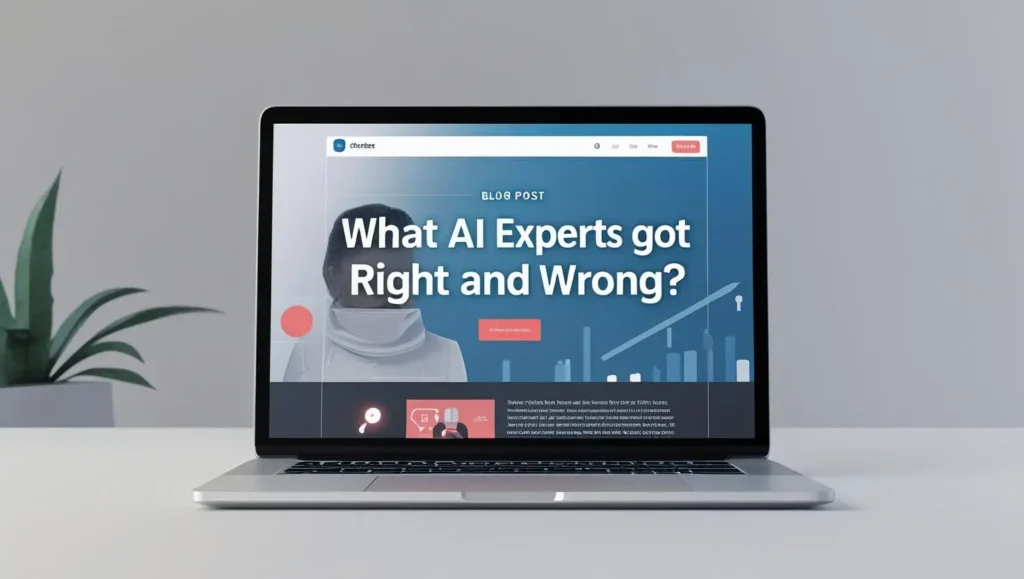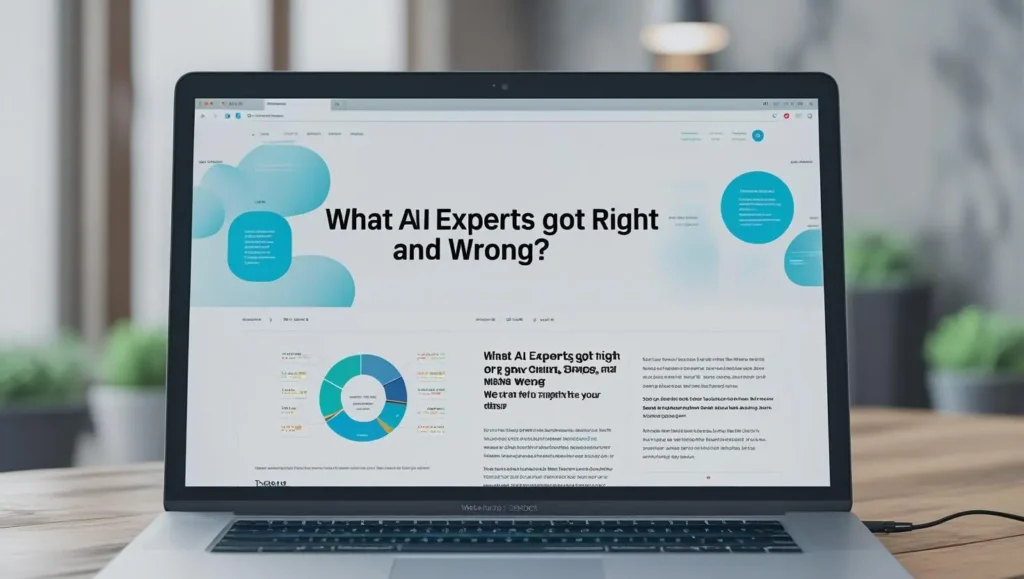The Humbling Reality of AI Forecasting
Even the brightest minds in artificial intelligence have a track record of AI predictions wrong by miles. From wildly optimistic timelines to completely missed opportunities, the history of AI forecasting is both fascinating and humbling. Understanding these prediction failures isn’t about pointing fingers – it’s about learning valuable lessons for navigating our AI-powered future. Let’s dive into the most notorious examples of AI predictions wrong and explore what experts actually got right along the way.
The Great Timeline Disasters
AI experts have consistently struggled with timeline predictions, often being spectacularly wrong about when breakthroughs would occur. In the 1960s, researchers confidently predicted human-level AI within a decade. Marvin Minsky famously claimed that machine intelligence would be solved within a generation. Similarly, many experts predicted that self-driving cars would be ubiquitous by 2020, yet we’re still waiting for widespread adoption. These AI predictions wrong about timing teach us that technological progress rarely follows linear paths, often experiencing unexpected plateaus and sudden accelerations.
Unexpected Winners and Surprising Failures
Some of the most interesting AI predictions wrong involved completely misidentifying which approaches would succeed. Many experts dismissed neural networks in the 1980s, betting instead on symbolic AI and expert systems. Conversely, few predicted the incredible success of transformer architectures that power today’s language models. The rise of large language models caught even seasoned researchers off guard – most expected gradual, incremental progress rather than the dramatic capabilities we see in GPT-4 and similar systems. These surprises highlight how innovation often comes from unexpected directions.
What Experts Actually Got Right
Despite numerous missteps, AI researchers made several remarkably accurate predictions. The concept of machine learning surpassing rule-based systems was correctly anticipated decades ago. Experts accurately predicted that AI would excel at pattern recognition, game-playing, and data analysis before tackling more complex reasoning tasks. The prediction that AI would transform industries like healthcare, finance, and transportation has proven largely correct, even if the timelines were off. Many researchers also correctly anticipated the importance of big data and computational power in driving AI progress.
Lessons for Future AI Predictions
The track record of AI predictions wrong offers valuable insights for evaluating future forecasts. Be skeptical of precise timelines, especially for complex milestones like artificial general intelligence. Focus on trends and capabilities rather than specific dates. Remember that breakthrough technologies often emerge from unexpected research directions, making long-term predictions particularly challenging. Most importantly, maintain healthy skepticism while staying open to possibilities – the future of AI will likely surprise us in ways we haven’t yet imagined.



